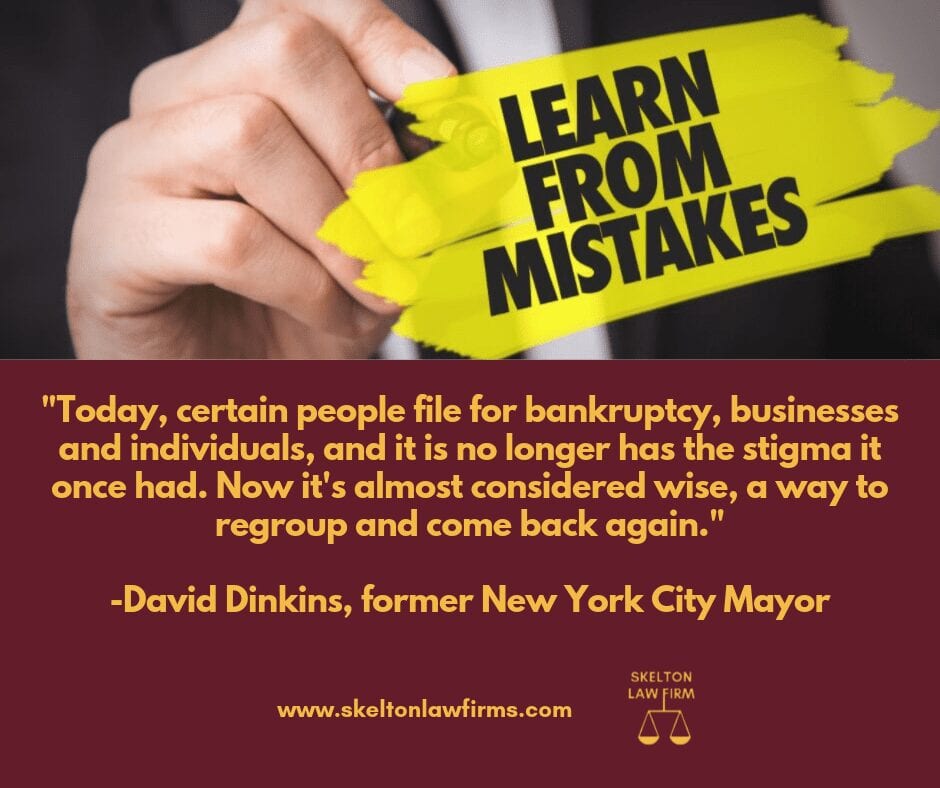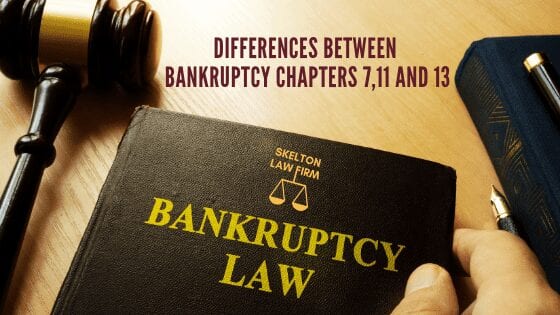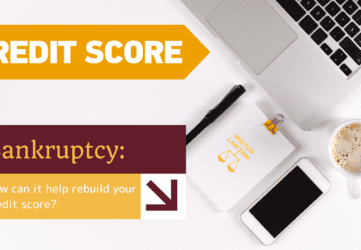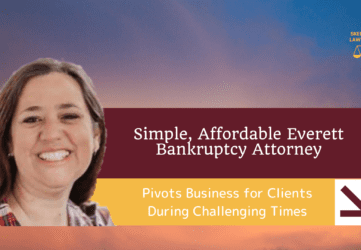Bankruptcy can be confusing, but having a little information can help. The law enacts rules and precepts to make it easy for you. At Skelton Law Firm, (Everett Bankruptcy Law Firm) we thoroughly understand the types of bankruptcies and can differentiate them quickly for you. Each situation is individualized, and most likely, your questions have already been asked and answered.

A Quick Lesson in Law Basics
The United States Code is an organized system of general and permanent published laws divided into subjects. It is broken down by titles. Titles include a bundle of relevant information similar to a topic. Comparable to a book there are Titles and chapters. The United States Code is prepared and published by the Office of the Law Revision Counsel (“OLRC”).
There are four types of bankruptcies in Title 11 of the United States Code (the Federal Bankruptcy Code)
- Chapter 7 – Liquidation
- Chapter 11 – Reorganization
- Chapter 12 – Adjustment of Debts of a Family Farmer with Regular Annual Income
- Chapter 13 – Adjustment of Debts of an Individual with Regular Income
Each Chapter for filing depends on the person’s economic situation. The different types of debt, whether they are a business owner, homeowner, and what is best for their case which will be determined by yourself and your bankruptcy attorney.
The Most Common Type of Filing is Chapter 7
Liquidation
Chapter 7 allows the debtor to drop their financial burdens and start over and begin new. In the primary steps of Chapter 7, an administrator or trustee, (includes your Bankruptcy Attorney,) will file the necessary documents for the debtor and manage the sale of assets. Not everything is sold. Federal and State laws allow for exemptions. Exempt property means that the debtor keeps some property, usually the residence that they live in and personal items.
After the debtor’s assets are sold, creditors will accept a portion of the money owed. In most cases, not all debts are paid, and the loans or obligations fall into the “forgiven” category.
- Alimony, spousal and child support, taxes and student loans are non-negotiate and have to be paid. You can not ever get out of paying these things! However, your Bankruptcy Attorney will help you find a way to pay them.
- Chapter 7 remains on your credit reports for up to 10 years.
Chapter 11
Reorganize and Restructure
Chapter 11 is the “Reorganization” Chapter. It basically reorganizes, reconstructs and establishes a new strategy for one who has been dealing with their finances in order to pay their debts, loans, etc.
In most terms, it may include a business or an individual to do so with the help of the Bankruptcy attorney and The Court. It simply revitalizes a plan and modifies the course of action to pay debts.
A business is also able to sell some assets to concentrate its attention on the profit-making aspects of its organization. It can increase finances to pay debts. Chapter 11 is good for assisting the business with the balance between budget and expenses.
Chapter 11 is recognized for two purposes that include a notable business owner that wants to and can proceed in providing services. Plus, their debts surpass the Chapter 13 maximum allowed limitations.
The 2nd most common type of bankruptcy is Chapter 13
Adjustments of debts to those with regular income
(Major difference means Chapter 13 is for an individual as compared to Chapter 11 which is for a business.)
Chapter 13 is also a reorganizing structure of finances and debt for an individual with regular income as opposed to a business owner. The debtor must have a steady source of income to pay back necessary debts or to be eligible for Chapter 13. That includes payments from a job, unemployment income, or social security.
You are given an “applicable commitment period” that includes a payment period up to three to five years. Most debts that can be “discharged” or unpaid are known as unsecured debts such as medical bills and credit cards. Unsecured debts are not backed with collateral such as a car or a home. Debts promised to be paid with collateral such as a car or home are called “Secured debts.”
- Certain debts that can not be cleared out are student loans, mortgages, car loans and spousal and child support
Other eligibility requirements for Chapter 13 are:
- Cumulative unsecured debts under $394,725.
- Total secured debt under $1,184,200.
- Chapter 13 remains on your credit reports for up to 7 years.
Now that you understand the difference between the common Bankruptcy chapters, you can be confident about talking to your Everett Bankruptcy Experts at Skelton Law. Call for your free consultation at (360) 822-7224
When you are under pressure, we are here to help. Everett Bankruptcy Experts at skeltonlawfirms.com





